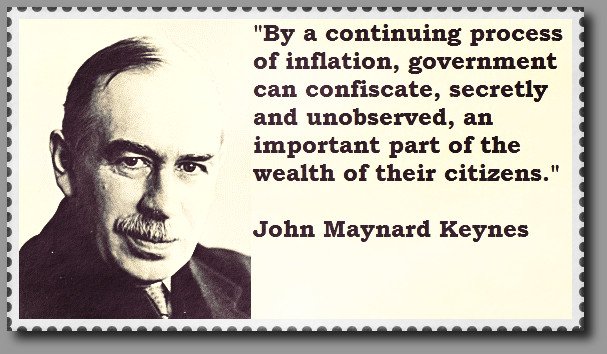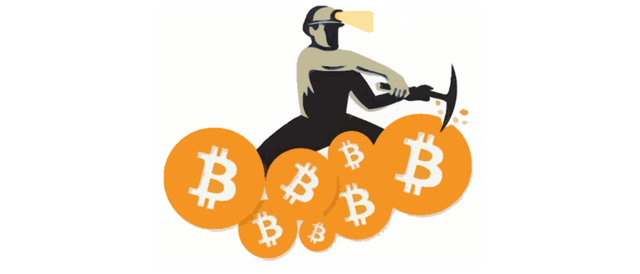Thoughts on Crypto-Currency Stability & Sustainability

Bitcoin seems to me to have two major flaws. The first flaw is its volatility. People trade bitcoins as speculative investment. This causes the value of bitcoins to fluctuate. The second flaw is that when new bitcoins stop being released, there will be less incentive for miners. As miners stop mining, the security of the network may become compromised. Luckily, there is a fairly simple solution that would address both of these problems. That solution is to periodically release new bitcoins as the value of the currency increases.
"Money is only important for what it will procure. Thus a change in the monetary unit, which is uniform in its operation and affects all transactions equally, has no consequences. If, by a change in the established standard of value, a man received and owned twice as much money as he did before in payment for all rights and for all efforts, and if he also paid out twice as much money for all acquisitions and for all satisfactions, he would be wholly unaffected.
"If follows, therefore, that a change in the value of money, that is to say in the level of prices, is important to Society only in so far as its incidence is unequal. Such changes have produced in the past, and are producing now, the vastest social consequences, because, as we all know, when the value of money changes, it does not changes equally for all persons or for all purposes. A man's receipts and his outgoings are not all modified in one uniform proportion. Thus a change in prices and rewards, as measured in money, generally affects different classes unequally, transfers wealth from one to another, bestows affluence here and embarrassment there, and redistributes Fortune's favours so as to frustrate design and disappoint expectation."―John Maynard Keynes (A Tract on Monetary Reform)
Money does not have an inherent value. Money does not produce wealth. The value of a unit of currency results from subjective valuations by consumers and corresponds to the value of real wealth (goods and services) which people are willing to exchange for it. The value of the currency is inherent in the marketplace, in real goods and services, which people are willing to exchange for money. The value of the currency has a limit. Its limit is the real-world wealth that backs the currency, the value of the goods and services that people are willing to exchange for a given amount of money at a particular time. The value of a unit of currency cannot just increase indefinitely, unless there is perpetual economic growth and an ever-expanding availability of resources.
If a person has a mortgage and owes 500 dollars a month, that is a fixed payment amount. If the value of the currency changes, the payment amount does not automatically adjust. Similarly, if an individual makes 20 dollars per hour, the wage is relatively fixed―there's typically no guarantee that the wage will be adjusted with inflation, and it usually is not adjusted by the employer. Now, suppose that the value of the dollar doubles overnight. Suddenly, the mortgage cost has doubled. He is now paying 1,000 dollars per month in real terms, even though the nominal amount hasn't changed. However, his employer will not continue to pay him 20 dollars per hour. The employer, being motivated by self-interest and profit, will lay him off and hire someone to work for 10 dollars per hour. When the individual goes to find another job, they too will only want to pay him 10 dollars per hour, the real market value of his labor. He will still be making 20 dollars per hour in real terms, even though his nominal wage is now 10 dollars per hour. The end result is that the amount of his mortgage has doubled and his wages have remained the same. On the other hand, what would happen if the value of money decreased by 50% overnight. Suppose that the government doubles the money supply and gives the new money to some politicians. The politicians become instantly rich, but the value of all the rest of the money decreases. The cost of the mortgage is now really only 250 dollars per month, so that the total to pay back the mortgage is now really less than what was originally agreed upon. The lender is getting screwed. Furthermore, the wages of the worker have been cut in half. The price of goods and services will adjust to the inflation, but his wages will not. His wages will remain fixed by a prior agreement. The employers will all be motivated by profit, so they will not have an incentive to increase the wages just because the value of the money has decreased; furthermore, just because the value of money decreased (or the money supply increased) doesn't mean that the amount of money available to the employer to pay employees has increased. The employer may not actually have enough units of currencies to double the nominal wages in order to keep the real wages at their original place. The new money is in the hands of the politicians, or whoever the government gives it to, which means an adjustment of wages would be impossible. Fluctuations in the value of currency are terrible and must be avoided. A stable and sound currency will not have drastic fluctuations in its value.

Currently, Bitcoin isn't the standard currency. The U.S. dollar is relatively stable in value, and all prices and contracts are negotiated in U.S. dollars. When we exchange bitcoins for goods or services, we generally make the trade in bitcoin valued in terms of U.S. dollars. I may trade 300-dollars-worth of bitcoin for a new computer. We are still using the dollar as our unit of measurement, even though we are exchanging bitcoins. If Bitcoin were ever to become the standard currency, we would no longer have this option. If crypto-currency ever replaces government currencies, then we will no longer be able to measure the value of crypto-currencies in terms of government monetary units―we won't be able to speak of "such-and-such-dollars-worth of bitcoin." At this point, the fluctuation of the value of bitcoins will be disastrous for the system. Our designs will be frustrated and our expectations will be disappointed, and rational economic calculation and planning will break down.
Many people think that supply is the only thing that determines price, so once they stop releasing new bitcoins the value will stabilize. This simply isn't the case. Price is determined by supply and demand! Supply is just one factor, among many, in the determination of prices. Speculative investment can drive up prices or cause them to crash. Thus, fluctuations in the value of a currency can, and will, happen even if the amount of the currency is fixed. In a free market, when there is greater demand for a particular good, the manufacturers boost production in order to increase supply. The free market adjusts supply in accordance with shifts in demand. While it is desirable to remove the power to create money from the hands of the State, it is not a good idea to have a fixed amount of currency that cannot be increased when demand increases. When the demand for automobiles increases, the automobile manufacturer increases production to make more cars. When the demand for money increases, the manufacturer of money ought to produce more money.
My proposal is to have a crypto-currency system that initially releases a fixed number of coins, just like Bitcoin, but after the fixed number is released, the system should focus on self-regulating to guard against fluctuation in value. Incorporate an algorithm into the crypto-currency system, which will not become active until after the pre-determined amount of fixed coins is released. Set that algorithm to automatically releases new coins in direct proportion to any increase in value of the currency that occurs. This will not confiscated any wealth from anyone in the system. The value of each unit of currency will remain the same, but the value will not increase. The creation of new coins will counteract deflation (or rising value of the unit of currency) and cause the price level to remain relatively stable or constant. Speculative investment will stop because there won't be any incentive in it, since the value of the currency can't really increase much. This will cause the price level to stabilize and create a sound currency. Since the creation of new coins will by determined by an algorithm to be in proportion to increase in demand, the creation of new money will not cause any devaluation of the currency. The system would be self-regulating, with no need for a central bank or treasury department. Since deflation will be rendered impossible by the algorithm, there will be no booms. Without booms, there is no bust. There will be no substantial risk of the value crashing.

This algorithmic release of new coins to counteract deflation will also solve the second major problem with Bitcoin.
"After 21 million coins are mined, no one will generate new blocks
"When operating costs can't be covered by the block creation bounty, which will happen sometime before the total amount of BTC is reached, miners will earn some profit from transaction fees. However unlike the block reward, there is no coupling between transaction fees and the need for security, so there is less of a guarantee that the amount of mining being performed will be sufficient to maintain the network's security."―Bitcoin Made Easy (2013 Edition)
This problem is solved by the periodic release of new coins to counteract deflationary pressure. Since new coins will be release periodically, miners will still receive a reward for mining. This will guarantee that there is always enough mining going on to maintain the network's security.
Another option to counteract deflation is to charge a small fee for hoarding bitcoins (aka demurrage) and distribute the fee to miners. While transactions should be as fee-free as possible. The benefit of this method is making the cryptocurrency an effective means of exchange.
I actually really like that idea. I never really thought about that option.
It's inspired by the concept of Freigeld. There is an interesting article that covers this idea, making a case for 'Market economy without capitalism' - http://userpage.fu-berlin.de/~roehrigw/onken/engl.htm
Sometimes i wish bitcoin had a fixed a value. So it'd be safe to just buy it and wait till waves calm a little bit if you'r not sure that investment in other cryptos have enough potential to grow.
But well chaos and volatility is more fun (maybe im crazy).
As for me, I want a viable and stable crypto-currency, something to replace conventional money, put the banks and plutocrats out of business....create a more libertarian, less statist social order.
I agree that volatility and the lack of inducement for miners are the flaws with BTC but the alternatives and suggestions you propose sound pretty good.
Hopefully one day it will be in a place where it can be stable
great post @ekklesiagora
awesome
i follow you now :)
good luck